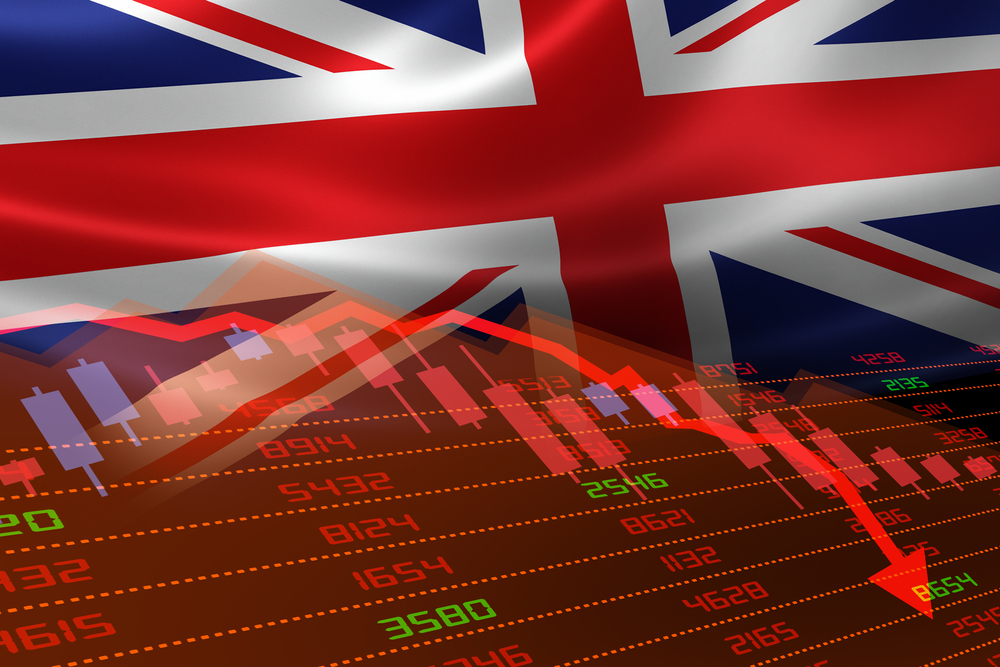News
UK economy ‘flipped into reverse’ in June as recession a ‘foregone conclusion’

The UK economy shrank 0.6% in June, better than the -0.9% drop expected by the market, but the grim reality of recession looms for the end of the year.
Gross domestic product (GDP) measures the value of goods and services produced in the UK. It estimates the size of, and growth in, the economy.
This GDP decline in June comes after 0.4% growth in May (revised down from 0.5%), according to the figures from the Office for National Statistics (ONS).
Overall, in the three months to 30 June, the UK economy contracted 0.1% which was above the market consensus of -0.2%. However, the figure was up 1.9% in the 12 months to June 2022.
According to the ONS, the figures need to be seen in the context of the Queen’s Jubilee as the May bank holiday was moved, leading to two fewer working days in June.
It revealed services fell 0.5% in June and was the main driver of the fall in GDP. A decline in human health activities was the largest contributor as test and trace activity fell further and vaccinations tailed off following the spring booster campaign.
Meanwhile production fell 0.9%, following a 1.3% increase in May. The ONS noted this was mainly due to a fall of 1.6% in manufacturing. Construction also fell 1.4%, ending its seven consecutive months of growth.
Further, output in consumer-facing services remained flat in June 2022, following a fall of 0.3% in May. Consumer-facing services were 4.9% below their pre-coronavirus (Covid-19) levels (February 2020) in June 2022, while all other services were 2.7% above.
‘Stop-start recovery’ but a ‘torrid 2023’
Samuel Fuller, director of Financial Markets Online, said: “The UK economy slammed on the brakes in the second quarter, not helped by war, inflation and extra holidays. GDP may have beaten expectations by a whisker but, having flipped into reverse, that’s not going to count for very much. There may be good reasons for this readout but the stop-start recovery is still a grim reality with recession bearing down.
“Andrew Bailey has set such poor expectations for the UK economy over the next 18 months, recession is a foregone conclusion and the risk is it ends up being deeper than it needs to be. Businesses everywhere will now be planning their hiring and investment strategy around a pretty torrid 2023. That’s been putting the pound under pressure while the Bank of England interest rates will continue to rise.
“With sterling already pretty weak after a sustained slump against the dollar, the pound didn’t react too badly. With the US already in technical recession the UK’s in good company and it’s still very unlikely the UK will post a second consecutive contraction in Q3.
“However, with inflation predictions of over 13% by the start of the fourth quarter, it’s going to continue to be bumpy from here. The inflation fight is top billing and the economy is just going to be dragged along with it.”
Jonathan Moyes, head of investment research at Wealth Club, said today’s figures will bring attention back to the Bank of England and the path of interest rates.
“The current inflationary spike is being driven overwhelmingly by global food and energy prices which, by and large, are outside of the Bank’s control. Higher interest rates in the UK will do little to alleviate those pressures. By looking to stave off any knock-on inflationary pressures, such as higher wages, the Bank risks strangling the life out of the economy without significantly easing the cost-of-living crisis. Whilst the Bank expected a slight contraction in Q2 GDP, the mounting weakness in the UK economy may give it pause for thought before continuing to lift rates higher,” he said.